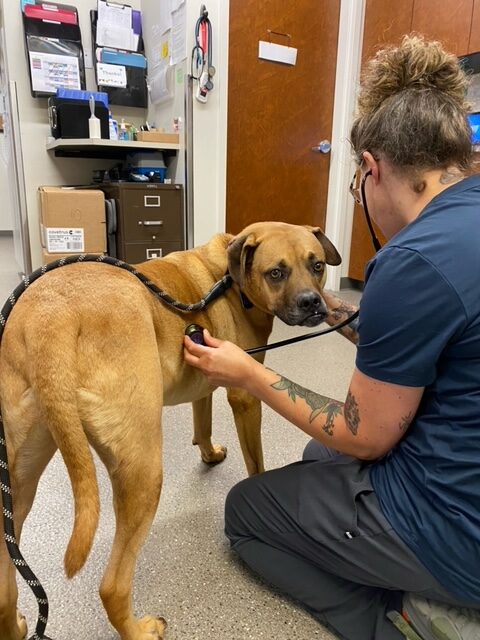
If you are traveling to Canada and bringing your dog with you, be prepared to show proof that your dog has been vaccinated against rabies upon your return to the United States.
The Centers for Disease Control and Prevention (CDC) Outlining new rules for bringing dogs into the United StatesThe ban comes into effect on August 1. It is aimed at preventing the spread of rabies and other diseases that can be transmitted from dogs to humans. The rules vary depending on whether the dog has been in a country with a high risk of rabies within the past six months.
For dogs coming from low-risk countries like Canada, entry is relatively easy: owners must present a U.S.-issued rabies vaccination certificate or a USDA-approved export health certificate that lists the dog’s age (minimum 6 months) and microchip number.
Additionally, the health certificate must state that the dog is rabies-free and has been returned from a low- or no-risk country, or have proof of a valid, unexpired rabies vaccination administered in the U.S. The form is only valid for 30 days if it does not include rabies vaccination information, and rabies vaccinations are valid for one to three years.
For dogs that have stayed in high-risk countries, the process is more complicated: they must be over 6 months old, appear healthy on arrival and have a valid rabies vaccination certificate. Dogs that arrive sick or injured must be examined and tested by a veterinarian at the owner’s expense to rule out diseases that may be transmitted to humans.
The CDC offers three options for bringing these dogs into the United States.
– Please present a U.S. issued rabies vaccination certificate.
– Obtain a CDC dog import permit.
– Use a CDC-certified animal care facility.
For more information on options, CDC website And that American Veterinary Medical Association.
All documents must be in English or be accompanied by a certified English translation.
Canadians bringing their dogs across the border must follow the same rules as American visitors, but Canadian Minister of Health Mark Holland “The CDC’s new restrictions could have negative impacts on Canadians, supply chains and local economies,” he said.
“This new CDC regulation affects all dogs entering the United States from Canada and will require Canadians to incur additional planning and costs to meet the new requirements,” Holland said. “This regulation also affects Americans returning to the United States with their dogs after visiting Canada.”
Holland said the rule would “disproportionately impact” people who need service dogs when they travel, as well as First Nations people who frequently travel across the border into their traditional territories.
U.S. Senators Susan Collins and Amy Klobuchar are leading a bipartisan group of 14 senators Send a letter The administration on Thursday asked CDC Director Mandy Cohen to extend the Aug. 1 deadline “to allow affected stakeholders time to comment on the proposed changes and for CDC to consider much-needed adjustments.”
They added that the CDC’s final rule would have “unintended harmful consequences.”
“The financial and regulatory burden that this new rule would impose on U.S. and Canadian dog owners will undoubtedly limit travel between our two countries,” the senators wrote. “The U.S. and Canadian economies are highly intertwined in the border region, and new entry requirements could impact attendance at important events held in both states, such as large sledding races that contribute to the regional economies.”
“Mushers are often shipped through Canada to compete in races across the United States, but the new restrictions could make traveling to these races more expensive and difficult,” the letter continued. “Sportsmen would also be prohibited from bringing puppies into the United States at the age when they are most suitable to begin training, and Canadian breeders would be unable to release puppies to U.S. owners before they are vaccinated, limiting the development of skills acquired early in life. Truck drivers who travel with dogs to transport goods to the United States may also find it harder to meet these restrictions.”
Staff at veterinary clinics contacted in south Snohomish County said they were only just learning about the regulations and couldn’t comment. Hope Liddill, co-clinic manager at Maple Leaf Animal Care Center north of Seattle, said some clients are “concerned” but she doesn’t think many know about it yet.
“If you don’t have the proper paperwork, your dog may be sent to several airports in the United States and quarantined at the owner’s expense,” Liddill said. “You will then have to pick up your dog.”
“The CDC claims that rabies-infected dogs are coming into the U.S. from abroad, through Canada and Mexico,” Liddill said, “but we don’t know the real reason.” [And] “Why only dogs? Cats and pet bats can easily be brought back into the country.”
Nick Ng


